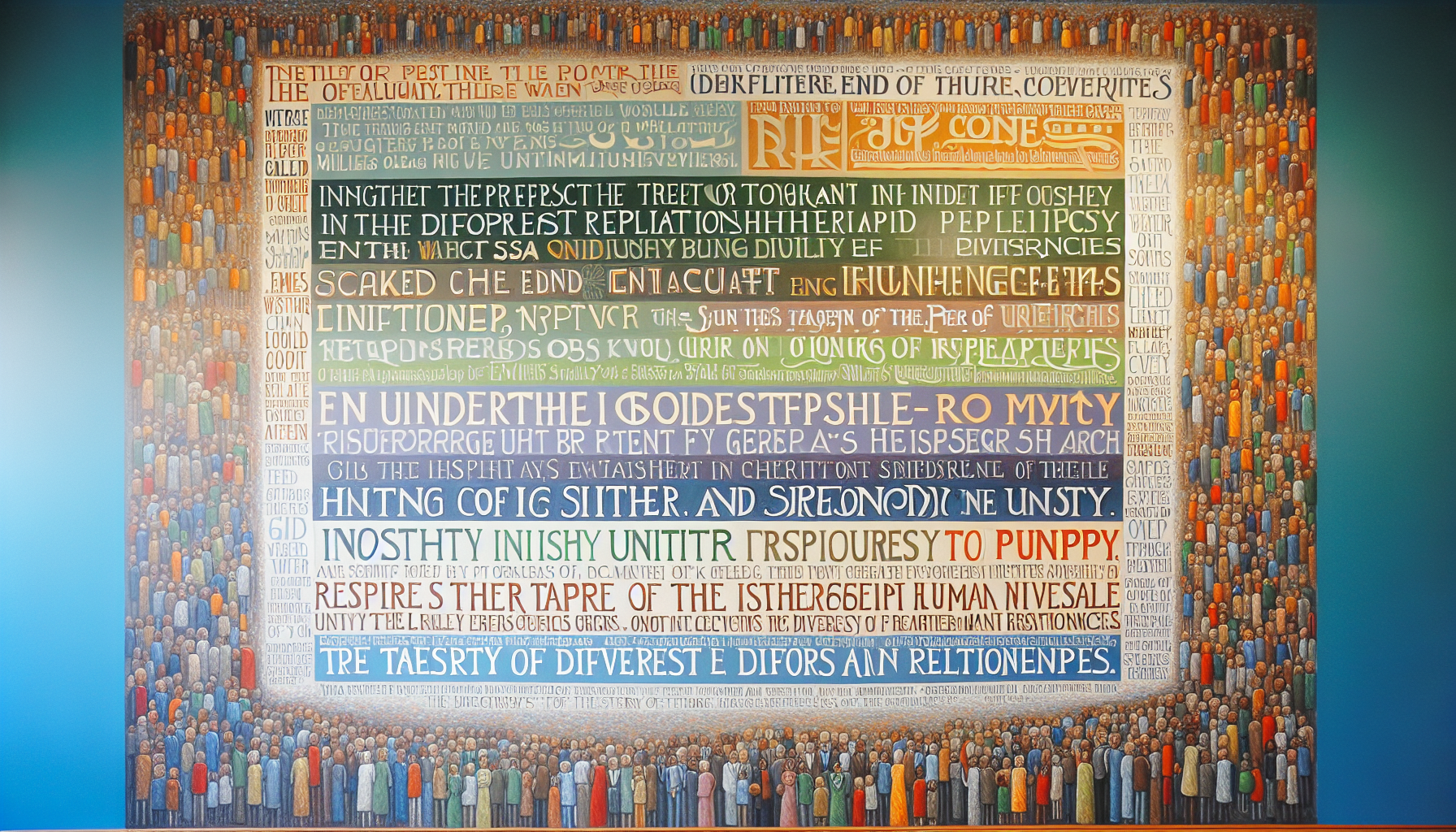Building a Better Future: The Impact of St. Mary's on the Community

One of the most pressing issues faced by communities today is mental health. St. Mary's Community Services has recognized this challenge and has developed comprehensive mental health programs tailored to the needs of diverse populations. Offering counseling services, support groups, and crisis intervention, the organization provides accessible mental health resources to individuals who might otherwise go without. For instance, a recent success story involves a young woman named Sarah, who struggled with anxiety and depression after losing her job. Through St. Mary's counseling services, she received the support she needed to navigate her challenges. With the guidance of a trained professional, Sarah not only managed her mental health better but also found employment again, showcasing how St. Mary's programs can lead to personal and professional revitalization. This initiative aligns with national data indicating that community mental health services can significantly reduce symptoms of mental illness and improve overall well-being.
Educational Programs and Youth Empowerment
Education is another critical area where St. Mary's makes a significant impact. The organization offers after-school programs, tutoring, and mentorship opportunities aimed at empowering youth in the community. These programs serve as a lifeline for many students, particularly those from low-income families, by providing them with the academic support and guidance necessary to succeed. One notable initiative is the "Future Leaders" program, which pairs high school students with mentors from various professional backgrounds. A participant, Jason, shared his experience of being matched with a mentor who guided him through college applications and career choices. This relationship not only helped Jason secure a scholarship but also instilled in him a sense of purpose and direction for his future. Programs like this are crucial, especially considering that studies show mentorship can significantly impact the educational and professional trajectories of young people.
Housing Assistance and Stability
St. Mary's also addresses the pressing need for stable housing within the community. Through its housing assistance programs, the organization helps families find safe and affordable homes while providing resources for financial literacy and budgeting. This multifaceted approach not only addresses immediate needs but also equips families with the tools for long-term stability. For example, the Rodriguez family, who faced eviction, turned to St. Mary's for help. With the assistance of a caseworker, they were able to secure temporary housing while also receiving guidance on managing their finances. This support enabled them to eventually move into a permanent home, breaking the cycle of housing instability and fostering a sense of security for their children. Such housing initiatives have been shown to improve the overall quality of life for families, supporting not only their physical needs but also their mental and emotional well-being.
Advocacy for Social Equity
In addition to direct services, St. Mary's is committed to advocacy work that promotes social equity. The organization actively participates in community coalitions and policy discussions aimed at addressing systemic issues that contribute to inequality. By raising awareness and advocating for change, St. Mary's plays a vital role in building a more equitable society. A powerful example of this advocacy is St. Mary's involvement in a local initiative to reform housing policies. By collaborating with other organizations and community members, they successfully lobbied for increased funding for affordable housing projects. This demonstrates the collective power of community engagement and advocacy and highlights how St. Mary's works not only to address immediate community needs but also to drive systemic change.
The impact of St. Mary's Community Services on the communities it serves is both profound and far-reaching. Through its mental health initiatives, educational programs, housing assistance, and advocacy for social equity, St. Mary's is not just providing services; it is fostering an environment where individuals can thrive and communities can grow. The stories of transformation from those who have benefited from these programs serve as a testament to the organization's commitment to building a better future. As communities continue to face challenges, the work of St. Mary's remains essential in paving the way for lasting change and empowerment. St. Mary’s is not only a beacon of hope for those in need but also an essential player in the broader effort to address systemic issues affecting marginalized communities. As we move forward, the importance of organizations like St. Mary’s will only continue to grow, reminding us that together, we can build a better future for all.
Mental Health Counselor
Community mental health centers, non-profit organizations, and hospitals
Core Responsibilities
Provide individual and group therapy sessions to clients dealing with mental health issues.
Develop and implement treatment plans tailored to each client's unique needs.
Conduct crisis intervention and assessments to determine the level of care required.
Required Skills
Master's degree in psychology, counseling, or social work.
Strong communication and interpersonal skills for effective client engagement.
Experience with trauma-informed care or specific therapeutic modalities (e.g., CBT, DBT).
Youth Program Coordinator
Non-profit organizations, schools, and community centers
Core Responsibilities
Design and oversee educational and mentorship programs aimed at empowering at-risk youth.
Recruit, train, and support volunteer mentors to ensure effective guidance for participants.
Monitor and evaluate program outcomes to assess effectiveness and areas for improvement.
Required Skills
Bachelor's degree in education, social work, or a related field.
Proven experience working with youth in community settings, particularly in low-income areas.
Strong organizational skills and the ability to manage multiple projects simultaneously.
Housing Case Manager
Homeless shelters, community housing organizations, and government agencies
Core Responsibilities
Assist clients in navigating housing resources and securing stable, affordable housing.
Provide financial literacy education and budgeting assistance to promote long-term stability.
Collaborate with local agencies and landlords to facilitate housing placements.
Required Skills
Bachelor's degree in social work, human services, or a related field.
Experience with housing programs and knowledge of local housing policies.
Strong advocacy skills and the ability to work with diverse populations.
Social Equity Advocate
Non-profit organizations, advocacy groups, and think tanks
Core Responsibilities
Engage in community outreach and advocacy to promote social equity and systemic change.
Participate in coalitions and policy discussions to address issues affecting marginalized communities.
Conduct research and prepare reports to inform advocacy efforts and community education.
Required Skills
Bachelor's degree in social justice, public policy, or a related field.
Strong analytical and research skills, with an understanding of social justice issues.
Excellent public speaking and communication skills for effective advocacy.
Program Evaluation Specialist
Non-profit organizations, research institutions, and government agencies
Core Responsibilities
Design and implement evaluation frameworks to assess the effectiveness of community programs.
Collect and analyze data to provide insights into program impact and areas for improvement.
Prepare reports and presentations to communicate findings to stakeholders and funders.
Required Skills
Master's degree in public health, social work, or a related field with a focus on evaluation.
Proficiency in statistical software (e.g., SPSS, R) and data analysis techniques.
Strong writing skills to convey complex information in an accessible manner.


